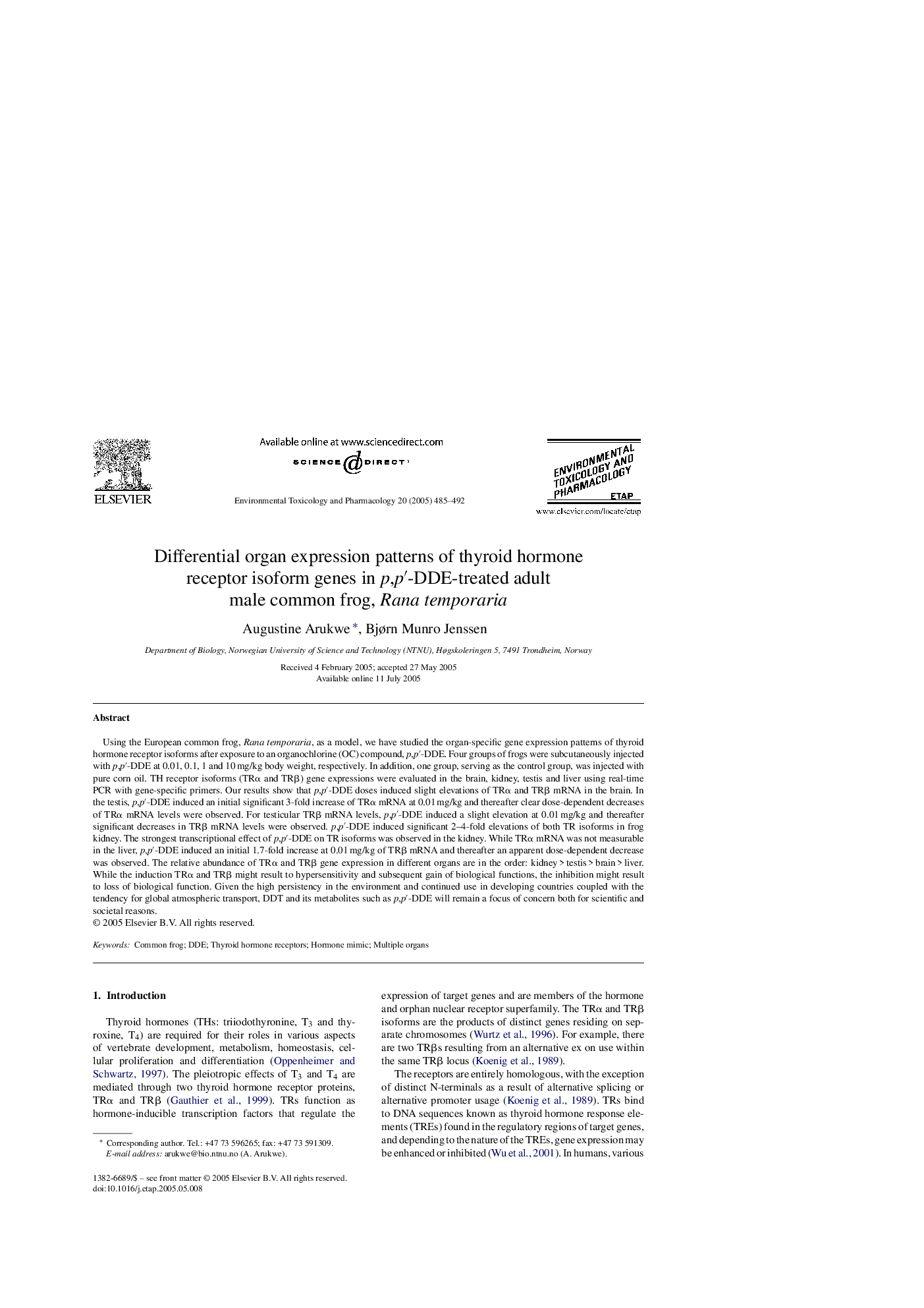| Article ID | Journal | Published Year | Pages | File Type |
|---|---|---|---|---|
| 9030042 | Environmental Toxicology and Pharmacology | 2005 | 8 Pages |
Abstract
Using the European common frog, Rana temporaria, as a model, we have studied the organ-specific gene expression patterns of thyroid hormone receptor isoforms after exposure to an organochlorine (OC) compound, p,pâ²-DDE. Four groups of frogs were subcutaneously injected with p,pâ²-DDE at 0.01, 0.1, 1 and 10 mg/kg body weight, respectively. In addition, one group, serving as the control group, was injected with pure corn oil. TH receptor isoforms (TRα and TRβ) gene expressions were evaluated in the brain, kidney, testis and liver using real-time PCR with gene-specific primers. Our results show that p,pâ²-DDE doses induced slight elevations of TRα and TRβ mRNA in the brain. In the testis, p,pâ²-DDE induced an initial significant 3-fold increase of TRα mRNA at 0.01 mg/kg and thereafter clear dose-dependent decreases of TRα mRNA levels were observed. For testicular TRβ mRNA levels, p,pâ²-DDE induced a slight elevation at 0.01 mg/kg and thereafter significant decreases in TRβ mRNA levels were observed. p,pâ²-DDE induced significant 2-4-fold elevations of both TR isoforms in frog kidney. The strongest transcriptional effect of p,pâ²-DDE on TR isoforms was observed in the kidney. While TRα mRNA was not measurable in the liver, p,pâ²-DDE induced an initial 1.7-fold increase at 0.01 mg/kg of TRβ mRNA and thereafter an apparent dose-dependent decrease was observed. The relative abundance of TRα and TRβ gene expression in different organs are in the order: kidney > testis > brain > liver. While the induction TRα and TRβ might result to hypersensitivity and subsequent gain of biological functions, the inhibition might result to loss of biological function. Given the high persistency in the environment and continued use in developing countries coupled with the tendency for global atmospheric transport, DDT and its metabolites such as p,pâ²-DDE will remain a focus of concern both for scientific and societal reasons.
Related Topics
Life Sciences
Environmental Science
Health, Toxicology and Mutagenesis
Authors
Augustine Arukwe, Bjørn Munro Jenssen,
